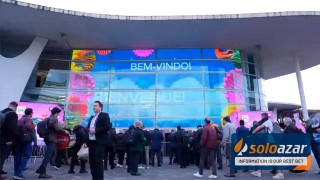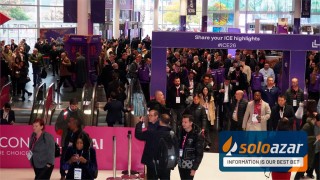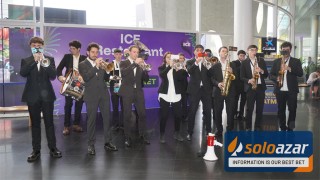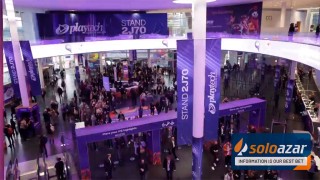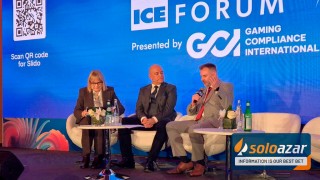Puerto Rico approves a project that alters the scheme of collections and regulation of slots
Wednesday 21 de December 2022 / 12:00
2 minutos de lectura
(Puerto Rico).- Governor Pedro Pierluisi Urrutia signed into law House Bill 1119, which alters the collection scheme and regulation of slot machines, despite the fact that the Fiscal Oversight Board (JSF) had informed him that did not do so, which means that the government is prevented from implementing the statute until it resolves the objections of the fiscal body.
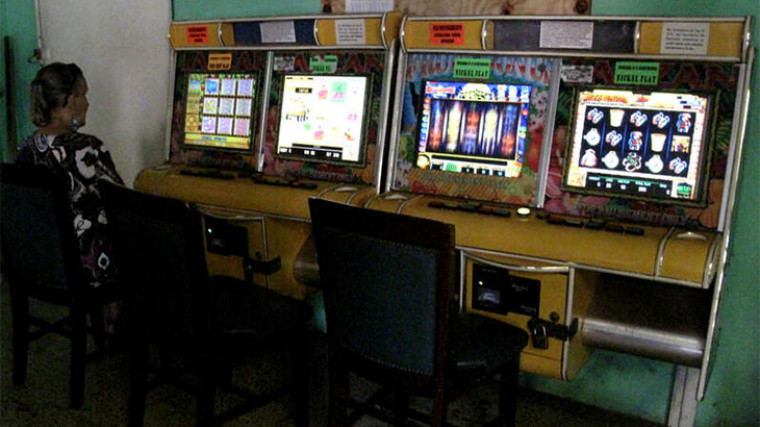
Both the representative of the Popular Democratic Party, José H. Rivera Madera, and La Fortaleza, promoted the signing of the measure as a strategy to raise money for the Police retirement fund, but the reality is that the approved text contains major concessions to slot machine owners, who are reduced what they have to pay for each machine they operate. Furthermore, the text dilutes the government's control over the machines. Initially, the concept was of centralization through the Department of the Treasury so that the government would have complete visibility on the transactions, but now each owner can have their own system to interconnect their machines and the distributions of money they make to the government would be based on the information that their own systems raise.
The Board's letter is dated December 14 and La Fortaleza announced the signing of the law on December 15.
In addition to the slot machine owners, the mayors are other hidden beneficiaries of the project because money they received from the operation of the machines that was specifically intended to cover health service costs in their municipalities now goes to a Municipal Reengineering Fund, with ability to use it more flexibly.
The changes that the Board objected to are:
-The license (or renewal) cost per machine drops from the current $1,500 to just $250. Currently, the government keeps $1,200 of the license and the Gaming Commission receives $300 to help fund that regulatory body. But, in addition to lowering the cost of the license, the measure leaves the government without that income because the $250 is divided into $175 for the commission and $75 for the retirement of the police officers. In this way, not only is the central government left without the income from the licenses, but the commission's license cut is reduced, something that the former executive director of the organization, Orlando Rivera Carrión, had opposed.
Another way in which government revenue is reduced is that the 2% tax on prizes greater than $500 is eliminated.
-Also, the distribution of income from the operation of the machines is altered in a way that once again reduces the income to the treasury. Currently, revenues are divided 33% to the government and 67% to the owners and operators of the machines. Now, the government would receive 22.5%.
-Another effect on the treasury that the Board pointed out is that currently the law provides that the first $40 million that enters the government for its part of the income from the machines is guaranteed for the General Fund and from then on it is divided into 50% for the retirement of the police, 45% to cover the expenses of health services of the municipalities and 5% go to the commission. But the measure eliminated this formula and now provides that nothing that enters through the government share will go to the General Fund, but rather, from the first peso, 60% will be distributed for the retirement of the police, 35 % for the Municipal Reengineering Fund and 5% for the commission.
“The project does not address how the Gaming Commission is going to face this reduction in its income, which is destined for operation and maintenance expenses. Nor does it address the reduction of $40 million in revenue to the General Fund, which are included in the collection projections of the Certified Fiscal Plan, or the consequences of diverting money from the costs of health services to the Reengineering Fund," the fiscal entity indicated.
Representatives Rivera Madera and Orlando Aponte Rosario introduced the measure in December of last year and in February of this year they had their only public hearing. In the Senate, it was downloaded and approved last June, initially being sent to the Governor for his signature last November. La Fortaleza was asked to return it, amendments were made and it was sent back to the Prime Executive on November 16. In the Senate, the Citizen Victory Movement and the Puerto Rican Independence Party voted against, while in the House, these same delegations and some members of the New Progressive Party delegation voted against.
Lobbying about the operation of slots and the way the government intervenes with them has spanned years through various government administrations. During the government of Wanda Vázquez Garced, a group of slot machine owners organized a fundraising activity in which they donated $25,000 in cash and shortly after the Tourism Company issued two regulations that the sector was interested in having issued.
Categoría:Legislation
Tags: Sin tags
País: Puerto Rico
Región: Central America and Caribbean
Event
ICE Barcelona 2026
19 de January 2026
Merkur Group Shines in Barcelona with Triple ICE Triumph
(Espelkamp/Barcelona).- Merkur Group secures three prestigious international accolades for operational excellence, social commitment, and standout exhibition experience.
Friday 06 Feb 2026 / 12:00
Eduardo Aching: "ICE 2026 was an exceptional event for Konami and its casino partners"
(Barcelona, SoloAzar Exclusive).- Eduardo Aching, Vice President of iGaming & International Gaming Operations at Konami Gaming, reflects on the company’s standout participation at ICE 2026, the strong reception to Solstice 49C and Konami Online Interactive, and the strategic push toward emerging regulated markets and expanded global partnerships.
Friday 06 Feb 2026 / 12:00
Belatra Games Strengthens LatAm Expansion and Innovation Strategy After ICE Barcelona 2026
(Barcelona, SoloAzar Exclusive).- Kateryna Goi, Chief Marketing Officer at Belatra Games, shares her assessment of the company’s participation in ICE Barcelona 2026, the quality of industry engagement at the event, and the strategic priorities shaping Belatra’s growth in 2026, with a strong focus on Latin America and narrative-driven innovation.
Friday 06 Feb 2026 / 12:00
SUSCRIBIRSE
Para suscribirse a nuestro newsletter, complete sus datos
Reciba todo el contenido más reciente en su correo electrónico varias veces al mes.










